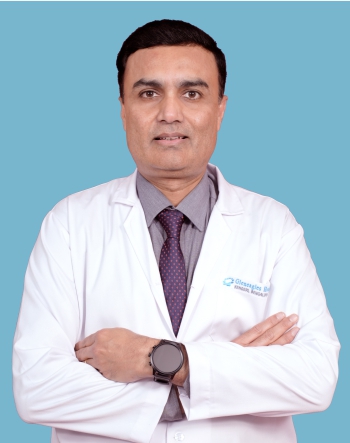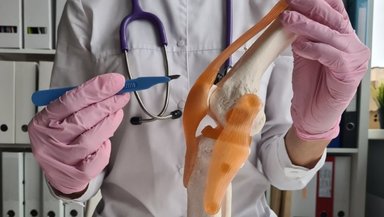How to Choose the Right Surgeon for Your Shoulder Arthroscopy in India

Medicine Made Simple Summary
If you are planning a shoulder arthroscopy in India, choosing the right surgeon is one of the most important decisions you will make. India has many skilled orthopedic surgeons, but finding the right fit for your needs requires careful research. From checking qualifications and hospital affiliations to understanding costs and patient reviews, this article will guide you through a step-by-step process. By the end, you will know exactly what to look for in a surgeon to ensure safe surgery, smooth recovery, and the best long-term results.
Why Choosing the Right Surgeon Matters in India
Shoulder arthroscopy is a specialized procedure, and the outcome depends greatly on the surgeon’s expertise. In India, where healthcare options range from small clinics to advanced super-specialty hospitals, choosing the right doctor becomes even more crucial. A highly experienced surgeon ensures precise diagnosis, safer surgery, and quicker recovery. With so many options, from government hospitals to private chains, patients must balance experience, accessibility, and affordability when making their choice.
Qualifications and Certifications to Look For in India
In India, the basic qualification for an orthopedic surgeon is an MBBS degree followed by MS (Orthopedics). However, for shoulder arthroscopy, additional training is very valuable. Many leading surgeons complete a fellowship in arthroscopy or sports medicine, often in India or abroad (UK, USA, Australia). Look for:
1. MBBS + MS (Orthopedics) – the essential foundation.
2. Fellowship in Arthroscopy/Sports Medicine – adds specialization.
3. Membership in Indian Orthopaedic Association (IOA) or Indian Arthroscopy Society (IAS).
4. International exposure through workshops and conferences.
These qualifications signal strong academic training and practical exposure.
Should You Choose a General Orthopedic Surgeon or a Shoulder Specialist?
India has many orthopedic surgeons, but not all specialize in shoulders. Some treat fractures, joint replacements, and spine issues in addition to shoulders. Shoulder specialists, however, focus primarily on shoulder conditions and perform a higher volume of arthroscopies. For routine procedures, a general orthopedic surgeon may be sufficient, especially in smaller cities. But for complex cases like rotator cuff repair or revision surgeries, choosing a shoulder specialist in a metro city may give better results.
Questions to Ask Your Surgeon in India
During consultation, ask practical questions tailored to the Indian context:
1. How many shoulder arthroscopies do you perform each month?
2. What is your experience with my specific condition (rotator cuff, labrum tear, instability)?
3. Where will the surgery be performed — government hospital, private hospital, or specialty center?
4. Who will handle anesthesia and post-surgery physiotherapy?
5. What are the total estimated costs, including hospital stay, implants, and rehabilitation?
Clear answers will help you understand both medical expertise and financial expectations.
Hospital and Facility Standards in India
India has a wide spectrum of hospitals. When choosing a hospital, look for:
1. NABH or JCI accreditation (ensures safety standards).
2. Availability of advanced arthroscopic equipment.
3. A dedicated physiotherapy department.
4. Good infection control protocols.
In smaller towns, facilities may be limited, so patients sometimes travel to metro cities for surgery.
Patient Reviews and Referrals in India
Word of mouth is powerful in India. Ask your family doctor, relatives, or friends for referrals. Patient testimonials online can also provide useful insights. Consistently positive reviews about communication, post-op care, and patient satisfaction are strong indicators. However, take extreme reviews with caution — focus on recurring themes in feedback.
Red Flags in Choosing a Surgeon
Be alert to warning signs such as:
1. The surgeon avoids discussing risks or alternatives.
2. You feel rushed during consultation.
3. No clear explanation of costs and hidden charges.
4. Limited experience with shoulder arthroscopy specifically.
5. Pressure to book surgery immediately without exploring physiotherapy first.
If you notice these, consider seeking a second opinion from a larger hospital or city-based specialist.
Checklist for Choosing a Shoulder Surgeon in India
Here’s a simple checklist for Indian patients:
1. Verify MBBS + MS (Ortho) and additional fellowship.
2. Ask about yearly shoulder arthroscopy volume.
3. Prefer hospitals with NABH accreditation.
4. Ensure cost transparency (surgeon fees, implants, hospital stay).
5. Check reviews on online platform
6. Avoid surgeons who rush or discourage questions.
This structured approach ensures you make an informed decision.
Setting Realistic Expectations
Even with the best surgeon, outcomes depend on multiple factors: severity of injury, age, health conditions like diabetes, and physiotherapy compliance. In India, physiotherapy follow-up is sometimes neglected due to travel or cost. Patients must plan for both surgery and rehab. Choosing a surgeon who emphasizes long-term care rather than just the operation ensures better success.
Conclusion
If you are planning shoulder arthroscopy in India, take time to research both the surgeon and the hospital. Schedule consultations, compare options, and ask questions about qualifications, outcomes, and costs. Your health is too important to leave to chance — invest the effort now to ensure a safe surgery and strong recovery.







































